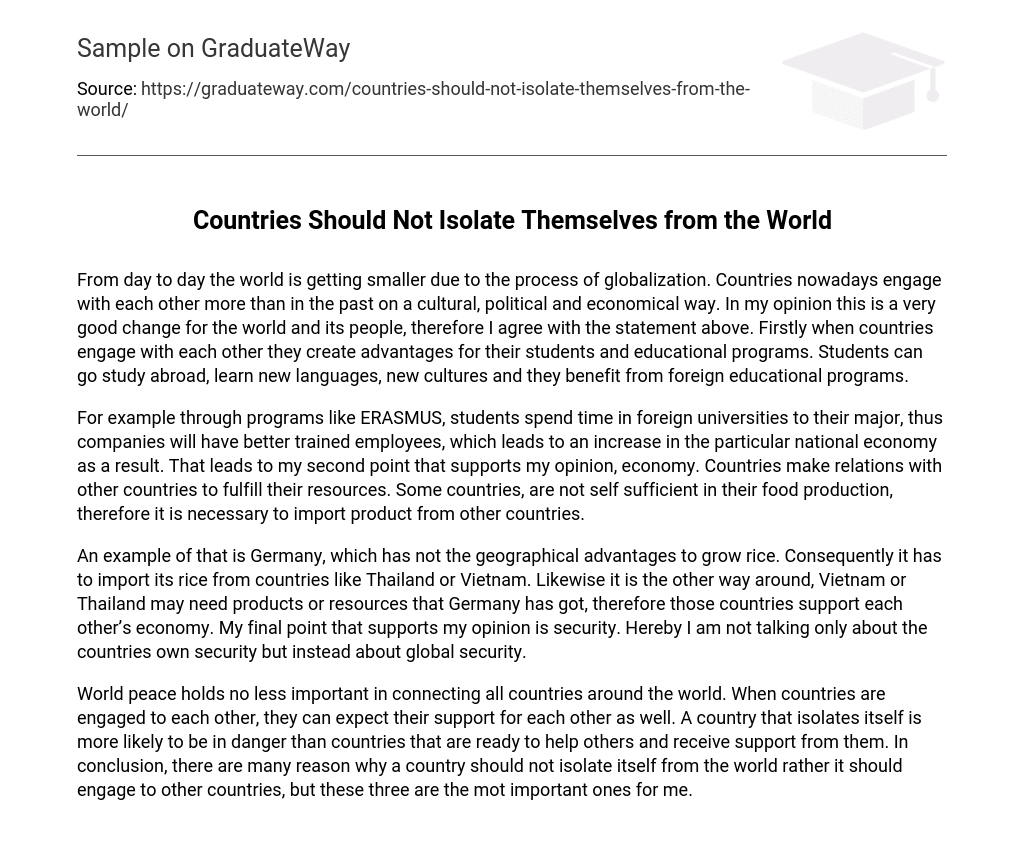The process of globalization is resulting in increased interaction between countries in cultural, political, and economic aspects, making the world smaller. I agree that this change is positive for both the world and its people. One advantage of this interaction is the creation of opportunities for students and educational programs. Students can now study abroad, learn different languages and cultures, and benefit from foreign educational programs.
Programs like ERASMUS allow students to study abroad at universities offering courses relevant to their field of study, enhancing employee training and contributing to national economic growth. Furthermore, countries establish international relationships to meet resource needs, including importing essential goods when lacking self-sufficiency in food production.
Germany, for instance, lacks the geographical advantages to grow rice and thus needs to import it from countries such as Thailand or Vietnam. In turn, Vietnam or Thailand may need products or resources that Germany has, creating a mutual economic support between these nations. Another reason supporting my viewpoint is security; I am not only referring to the individual security of each country but also considering global security.
The importance of world peace in connecting all countries cannot be underestimated. When countries establish connections with each other, they can rely on mutual support. Countries that isolate themselves are more vulnerable compared to those that actively assist others and seek support from them. In summary, there are numerous reasons why a country should avoid isolation and instead engage with other nations. However, these three reasons hold the utmost significance for me.





